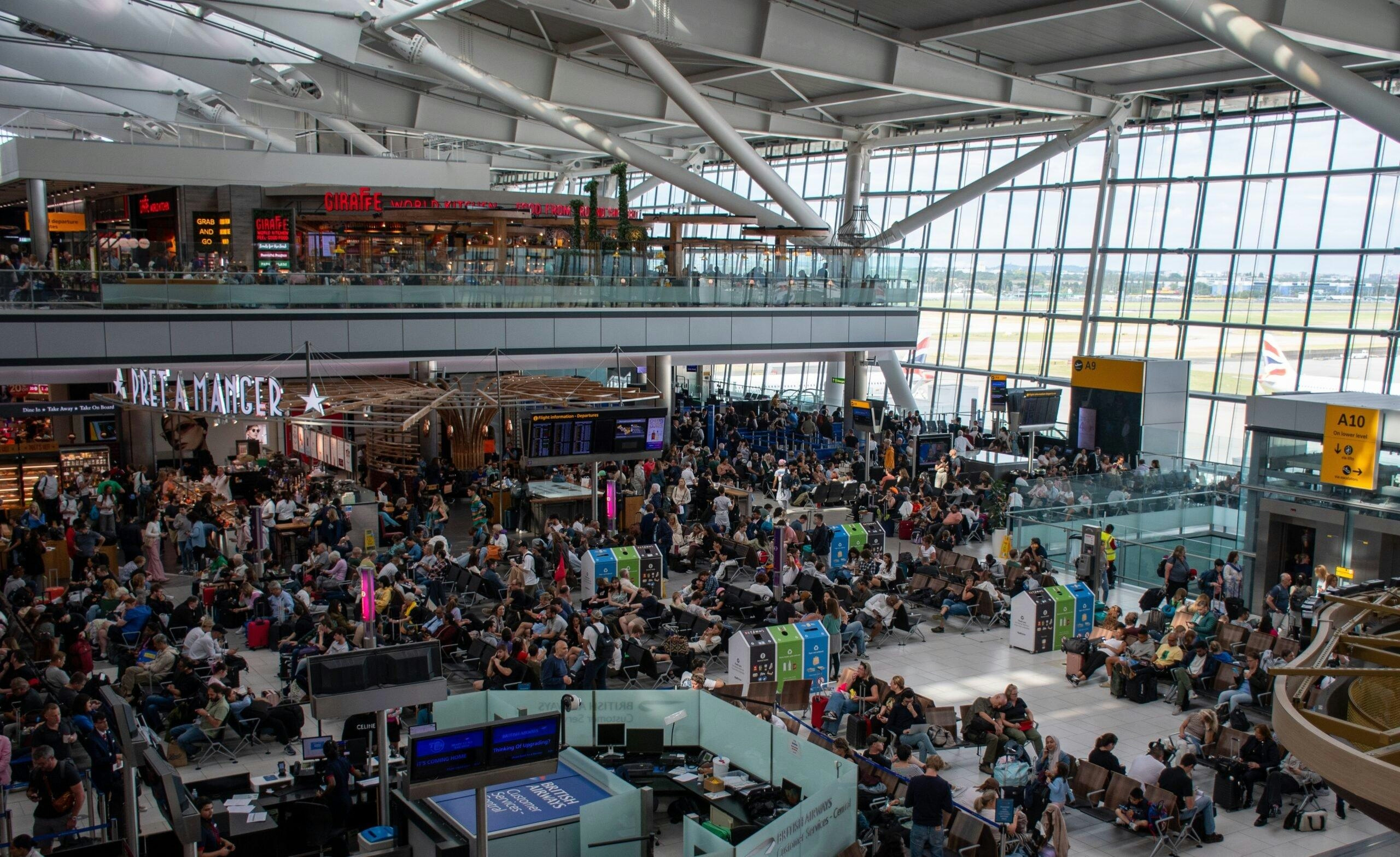AeroGenie — Ваш интеллектуальный второй пилот.
В тренде
Categories
Hundreds of UK Flights Delayed Due to Air Traffic Control System Failure

Hundreds of UK Flights Delayed Following Air Traffic Control System Failure
On Wednesday, July 30, hundreds of flights across the United Kingdom experienced significant delays after a technical failure disrupted the country’s air traffic control (ATC) system for approximately 20 minutes. The incident raised concerns of a recurrence of the August 2023 outage, which had left hundreds of thousands of passengers stranded and caused widespread travel disruption.
Technical Fault and Immediate Response
Nats, the organisation responsible for managing the UK’s air traffic control network, identified the cause of the disruption as a technical fault at its Swanwick control centre in Hampshire. The problem was swiftly addressed by switching to a backup system, and Nats was quick to clarify that the incident was not related to any cyberattack. This was corroborated by the UK National Cyber Security Centre, which confirmed there was no evidence of hacking.
Despite the prompt resolution, the outage triggered a ripple effect of delays across the country. Numerous aircraft were forced to hold or divert, while flight crews found themselves out of position, exacerbating operational challenges for airlines. British Airways temporarily reduced its flight operations at Heathrow Airport to 32 flights per hour, down from the usual 45, until 7:15 pm, when normal scheduling resumed. Liverpool’s John Lennon Airport also issued warnings that disruptions could continue into the evening. Passengers nationwide were advised to check with their airlines before travelling.
Impact and Industry Reactions
The disruption caused considerable inconvenience for travellers and is expected to result in financial losses for airlines due to cancellations and delays. The incident has intensified scrutiny of Nats’ operational reliability, prompting calls for enhanced backup systems to prevent similar failures in the future. Some airlines sought to highlight their own operational efficiencies and customer service in contrast to the disruption.
Ryanair was particularly vocal in its criticism, with Chief Operating Officer Neal McMahon describing the situation as “outrageous” and attributing the failure to “continued mismanagement” by Nats’ Chief Executive, Martin Rolfe. McMahon called for Rolfe’s resignation and urged Transport Secretary Heidi Alexander to intervene if the leadership did not change, demanding urgent reform of what he termed Nats’ “shambolic” service.
Transport Secretary Alexander acknowledged the incident and cautioned passengers about “continued disruption” despite the restoration of the system. The latest failure comes less than a year after the August 2023 breakdown, which affected over 700,000 passengers and sparked widespread criticism of the UK’s air traffic control infrastructure.
While the immediate technical issue was resolved, the full extent of the disruption and its consequences remain to be seen. The incident has reignited debate over the resilience of the UK’s air traffic control systems and the necessity for robust contingency measures to safeguard passengers and airlines from future failures.

Emirates Unveils Cabin Design for New Boeing 777X

Eighteen Years On, the Airbus A380 Remains Central to a $34 Billion Airline

How a boom in luxury airline seats is slowing down jet deliveries

Navitaire Outage Attributed to Planned Maintenance

DigiYatra Debuts Outside Aviation at India AI Impact Summit

Vietnam Orders Strengthen Boeing’s Commercial Outlook

Airbus Signals Uncertainty Over Future A400M Orders

JobsOhio Awards $2 Million Grant to Hartzell Propeller for Innovation Center

Collins Aerospace Tests Sidekick Autonomy Software on YFQ-42A for U.S. Air Force CCA Program

How the Airbus A350-1000 Compares to the Boeing 777
